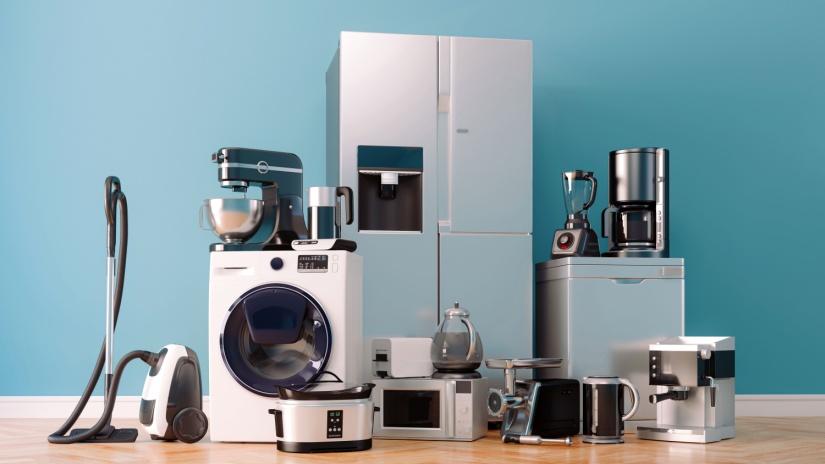Knowledge Centre
What is a kWh?

Understanding your power bill can be confusing, especially when you're faced with terms like 'kWh.' However, learning what these energy concepts mean is key to managing your bills effectively and finding the best energy deals.
The kilowatt-hour (kWh) is a fundamental unit in the electricity world, and it will help to determine energy consumption and billing. Whether you're deciphering your electricity bill or aiming to reduce your environmental impact, knowing what a kWh is and how it influences your daily energy usage is vital.
So, what IS a kWh?
A kilowatt-hour, abbreviated as kWh, is a unit of measurement used to determine how much energy has been consumed. The prefix "kilo" signifies 1,000, meaning a kilowatt equals 1,000 watts. It indicates the amount of energy consumed by a device or system operating at a power of one kilowatt for one hour.
We don’t say ‘kilo’ because that would become confusing with other measurements such as a kilogram. Your home's electricity usage, measured in kWh, is recorded by your electricity metre and communicated to your retailer for billing.
Your bill will specify the amount of kWh used as per the metre readings, as well as the supply charges in kWh. In cases where your metre is inaccessible, your energy provider may need to estimate your usage. As a point of reference, the average five-person household typically consumes around 20 kWh of electricity per day.
What’s a watt?
A watt, named after James Watt, a Scottish inventor and engineer, is a unit of measurement used to gauge the rate at which electrical power is produced or used. It signifies the amount of energy transferred or consumed per unit of time.
Watts serve as the international unit of measurement for calculating energy usage, thereby determining the cost of your electricity bill.
In practical terms, a watt quantifies the work performed by an electrical device or system. For instance, a 100-watt light bulb consumes 100 watts of electrical power to produce light. The power rating of other appliances, such as refrigerators, air conditioners, and televisions, is also expressed in watts to indicate their energy consumption levels.
How is a watt different from a kilowatt hour?
A kilowatt (kW) is a measurement of power that tells you how fast electrical energy is being used or made. It shows the amount of power used at a particular moment. For instance, a 1kW appliance uses or produces one kilowatt of power.
On the flip side, a kilowatt hour (kWh) is a measurement of energy that shows the total amount of electrical energy used or made over time. It's like the sum of all the power used or made during that time. One kilowatt hour equals 1,000 watts of power used or made for one hour. So, if a 1 kW appliance runs for 1 hour, it uses 1 kWh of energy.
To put it simply, kilowatts tell you the rate at which power is used or made, while kilowatt hours tell you the total amount of energy used or made over a specific period.
Why is it important to understand?
Differentiating between kilowatts and kilowatt-hours is key to efficiently managing electricity use, estimating energy expenses, and assessing device efficiency.
Since electricity bills are often based on total kilowatt-hours consumed, understanding this difference is crucial.
By keeping an eye on both the power rating (in kilowatts) and the duration of usage, you can determine the total energy consumption (in kilowatt-hours) of your appliances. This knowledge empowers you to make informed choices about the most suitable energy plan for your needs.
Which appliances eat up electricity?
Each appliance in your home consumes a unique amount of power. Rather than focusing on individual kWh usage, it's more practical to consider the overall energy consumption of your appliances during regular use.
Here are some examples of the kilowatt-hours (kWh) consumed by common household items:
| Appliance | Consumption (kWh) |
| 50" LED TV | 0.016 kWh |
| Electric dishwashers | 2 kWh (per load) |
| Electric water heater | 380 - 500 kWh (per month) |
| Refrigerator | 54 kWh (per month) |
| Clothes washer | 2.3 kWh (per load) |
| Clothes dryer | 2.5 - 4.0 kWh (per load) |
| Air conditioner | 3.0 kWh (per hour) |
| Nissan Leaf electric vehicle | 40 kWh (per full charge) |
Newer appliances feature an Energy Guide label that provides an estimate of the yearly electricity usage. Multiplying this figure by your kilowatt-hour rate will give you the cost of operating that device.
To reduce electricity bills, focusing on improving the efficiency of heating and cooling systems is a logical first step, given their substantial share of energy consumption in most homes.
How to reduce your electricity bills
There are numerous ways to monitor and reduce your energy consumption at home. Consider the following suggestions:
Heating and cooling
- Properly insulate your home to minimise heat loss and gain.
- Use programmable thermostats and upgrade to more energy-efficient heating and cooling systems.
Energy-efficient appliances
- Opt for appliances with high star ratings to reduce electricity usage.
- Look for appliances that comply with Australia's energy rating system standards.
Lighting
- Switch to energy-efficient lighting like LED bulbs.
- Make use of natural light by opening curtains during the day and use task lighting for specific areas instead of illuminating entire rooms.
- Turn off lights in unoccupied rooms.
Standby power
- Appliances consume power even when turned off but in standby mode.
- Unplug devices when not in use and use power boards to switch off multiple appliances completely overnight.
Hot water efficiency
- Install water-saving fixtures and promptly fix any leaks.
- Wash clothes in cold water and reduce shower duration.
Appliance usage
- Operate washing machines and dishwashers with full loads and use energy-saving settings.
- Air-dry clothes instead of using a dryer.
Energy-saving habits
- Practice energy-conscious habits such as turning off lights, using power-saving modes, and optimising thermostat settings.
Solar installation
- Consider installing solar panels to generate clean energy and potentially reduce reliance on the national electricity grid.
Implementing these tips and embracing energy-efficient practices can significantly reduce your energy consumption and lower electricity bills. Additionally, you'll contribute to a more sustainable future.
Contact Compare Energy
Becoming familiar with energy concepts is essential for securing the most cost-effective electricity plan. With a grasp of kWhs, it's wise to regularly review your bills to gauge your electricity consumption and explore potential savings - and we can help you with that.
Contact the team at Compare Energy and you might find opportunities to cut costs by reducing your power usage, switching to a better plan, or implementing both strategies.

